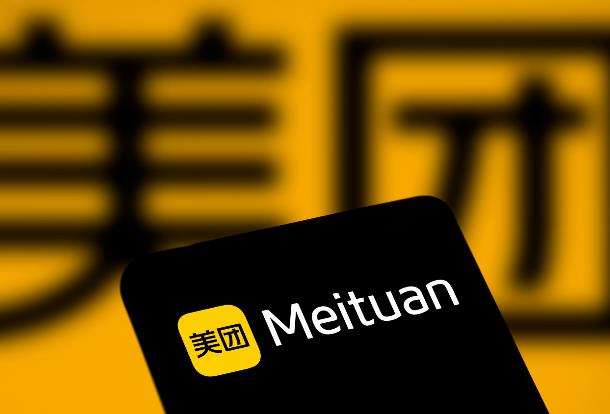Chinese tourists around the globe
For the first half of 2018, the number of China’s inbound and outbound travelers rose 6.9% YoY to 141 million, of which about 71.31 million were outbound travelers, an increase of 15%.
Russia received up to 50,000 Chinese tourists during the FIFA World Cup period alone. In January-July of this year, outbound tourism from China to Russia increased by 150% compared to the same period last year, according to Ctrip. The surge in tourism is a result of Russia’s “more friendly” policy towards inbound tourism, and towards Chinese travelers in particular.
On the other hand, Chinese tourist arrivals to the US fell due to the Sino-US trade war. Data from Spain-based travel analysis firm ForwardKeys show that weekly bookings from China to the US in August were down by 8.4%. Forward outbound bookings for the rest of the year to the US are 9.6% behind the level of the same time last year, whereas outbound bookings worldwide are ahead by 5.5%. Group travel with six or more passengers from China to the US is hardest hit, currently behind by 34.4% for the rest of 2018. Bookings by free independent travelers are behind 3.9%, and leisure travel is more affected than business travel or visit friends and relatives.
Thailand slipped from its top ranking in the top 10 destinations for Chinese visitors in the last 12 months, and ranked second after Japan. Ctrip reported that overseas travel bookings for the upcoming National Day holiday are 4% higher than the same time last year, and that Japan surprisingly overtook Thailand as the No.1 destination. About 6 million Chinese visitors went to Thailand in the first half of this year.
In June, a total of 379,891 Chinese mainland tourists visited South Korea, 49% more than the same month last year, according to Korea Tourism Organization. Online travel platform Mafengwo.com noticed that the search popularity of South Korea-related tourism products in July grew 37.8% over June, albeit still behind pre-THAAD levels. Individual travelers contributed to the increase in visitor number.
According to eMarketer's latest report, this year’s global digital travel sales will increase 10.4% to USD 694.41 billion, and digital travel sales in China will total USD 133.90 billion in 2018, a 20.5% increase over 2017. Since the bulk of China’s population has yet to book online, there is more room for growth. "Between 2017 and 2022, China’s growth rate will more than triple that of the US each year.”
Ctrip, Meituan and Huazhu Group
Trip.com, an international travel booking platform owned by Ctrip, will work with payment service provider Ingenico in payment processing and consulting services. With Ingenico on board, Trip.com now has access to a large portfolio of local acquiring connections, currencies, payment methods and expertise. Ingenico’s multi-acquirer solution automatically reroutes declined payments to a backup acquirer, leading to higher authorization rates for Trip.com while reducing frustration for international consumers.
Ctrip has formed a partnership with China’s online entertainment service portal iQIYI. Under the agreement, iQIYI V7 VIP members will have access to the exclusive perks available to Ctrip's Prime Members, including discounts on hotel bookings, admission to attractions, priority airport security services, priority for purchasing train tickets, as well as access to airport VIP lounges. The benefits will be available for one year after activation and can be redeemed before June 30, 2019.
On September 20, Chinese online services provider Meituan Dianping will go public in Hong Kong. It will be the city’s third-biggest IPO this year. The company is valued at USD 50-55 billion post-floatation, after raising at least USD 4 billion in the IPO. Tencent plans to buy about USD 400 million worth of Meituan’s shares to add to more than 20% it already holds in Meituan.
According to local media, a hacker obtained the data of 130 million hotel guests from Huazhu Group, AccorHotels’ cross-ownership partner and one of China's largest hotel chains with more than 100 million loyalty members. The hacker is said to be selling the personal details for 8 Bitcoin (USD 56,000) on a dark web forum. Cyber-security firm Zibao has verified the data to be authentic, adding that the breach was possible due to a mistake of the Huazhu's development team.
China’s Anbang Insurance Group is looking to sell a luxury hotel collection that it acquired from Blackstone Group LP for USD 5.5 billion in 2016. Anbang has been approaching potential buyers directly, and entertaining offers to buy individual properties within its hotel portfolio, which includes high-end properties like the Essex House Hotel overlooking Manhattan’s Central Park; the Four Seasons Hotel in Jackson Hole, Wyoming, and the InterContinental Hotels in Chicago and Miami.
Startup funding
Immigration service platform Hinabian has picked up an undisclosed sum of financing, backed by Ctrip. It offers information and services for more than 50 immigration projects in 21 countries since its foundation in 2014, and has extended to the overseas real estate sector since 2017.
Fitness brand Hyperfit has raised a new round of investment to support its intelligent management of hotel fitness operations and stores expansion. Though an emerging player in the market, it has maintained an in-store conversion rate of 80% and a repurchase rate of over 80% through word of mouth.
Rural tourism marketing platform Xiangyou has secured a seed funding of about a million yuan. It launches full-service new media marketing solutions for rural tourism players, helping them with operation strategies featuring new media, e-commerce and integrated marketing. It plans to sign 200 sharing homes in 50 villages in six months.
Black Fish, a membership-based e-commerce firm founded by former executives of online travel booking site Tuniu, has received USD 50 million in its latest financing round. Referencing the business models of American Express and Costco, the startup builds its own membership system and provides finance, tourism and merchandise services to its registered members. It targets young white-collar workers as the major customer group.




